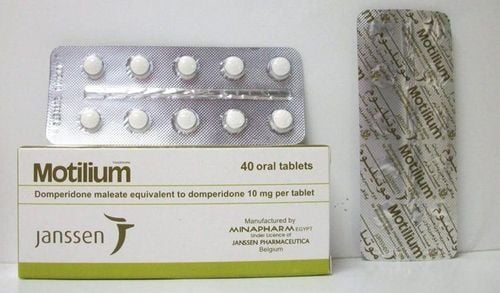This is an automatically translated article.
Aptiom is used alone or in combination with other medicines to treat a type of seizure disorder (focal seizures). Aptiom belongs to a group of anticonvulsants. Aptiom can reduce the number of seizures you have.
1. Uses and indications of Aptiom
Aptiom is used alone or in combination with other medicines to treat a type of seizure disorder (focal seizures). Aptiom belongs to a group of anticonvulsants. Aptiom can reduce the number of seizures you have.
Some notes when using Aptiom:
Read the instructions for use and instructions provided by your doctor carefully before you start taking Aptiom and each time you are prescribed it again. Aptiom is taken by mouth. You can take this medication on an empty or full stomach as directed by your doctor, usually once a day. The dose of Aptiom is calculated by your doctor based on your medical condition and response to treatment. Aptiom dosage for children is also based on weight. To reduce your risk of having Aptiom side effects, your doctor may direct you to start this medicine at a low dose and gradually increase your dose. Make sure you follow your doctor's instructions carefully. Use Aptiom regularly to achieve the best effect. To help you remember and avoid forgetting to take your medicine, take it at the same time each day. Absolutely do not arbitrarily increase the dose or use Aptiom more often or for longer than prescribed. Doing so will not help your condition improve any faster and will increase your risk of side effects. Do not stop taking Aptiom on your own without consulting your doctor. Some conditions, such as seizures, may get worse when Aptiom is stopped suddenly. The dose of Aptiom you are taking may need to be gradually reduced until it is completely stopped. Tests such as sodium/chloride levels and liver function tests may be done before you start treatment, periodically to monitor your progress or check for side effects. Tell your doctor if your seizures get worse.

Người bệnh nên dùng thuốc theo đúng chỉ định của bác sĩ điều trị
2. Side effects of Aptiom
When using Aptiom you may experience some unwanted effects such as headache, tremor, drowsiness, fatigue, dizziness, unsteadiness, feeling lightheaded, nausea or vomiting. If any of these effects persist or get worse, tell your doctor right away.
Remember that your doctor has prescribed Aptiom because he or she has judged that the benefit to you outweighs the risk of side effects. And in fact, many people have used Aptiom without experiencing any serious side effects.
Tell your doctor right away if you have any serious side effects while using Aptiom, including:
Rapid or uncontrolled eye movements. Blurred or double vision. Loss of balance or loss of coordination. Signs of infection such as sore throat that won't go away, fever, chills. Easy bruising or bleeding. Pale skin. A small number of patients take anticonvulsants for any condition such as seizures, bipolar disorder, pain, and they may experience depression, suicidal thoughts or attempts, or problems other mental/mood. Tell your doctor right away if you or your family or caregivers notice any unusual or sudden changes in your mood, thoughts, or behavior, including signs depression, suicidal thoughts, thoughts about harming yourself. If you have any very serious side effects while using Aptiom, you need to seek medical attention right away. Very serious side effects, including:
Signs of liver disease such as dark urine, persistent nausea, vomiting, stomach pain, abdominal pain, yellowing eyes, jaundice. Signs of low blood sodium levels such as severe nausea, extreme drowsiness, confusion, irritability, new or worsening seizures, muscle weakness or pain. A very serious allergic reaction has very rarely occurred with Aptiom use. However, get medical help right away if you notice any symptoms of a serious allergic reaction, including: fever, swollen lymph nodes, rash, itching or swelling especially in the face, tongue, or throat, severe dizziness, trouble breathing.

Một số trường hợp có thể xuất hiện nước tiểu vàng đậm sau khi dùng thuốc Aptiom
Aptiom side effects by severity of occurrence:
Common Aptiom side effects include:
Blurred vision Dizziness Double vision Drowsiness Headache Loss of muscle coordination Low energy Muscle tremors Nausea Feeling of spinning or spinning Vomiting Uncommon side effects of Aptiom include:
Skin rash Emotional disturbances Agitation Confusion Cough Decreased appetite Depression Difficulty sleeping Swelling in legs, feet, arms or tables hand High blood pressure Dementia Memory nystagmus, a condition with involuntary eye movements.
Rare side effects of Aptiom include:
Low thyroid hormone levels Disorders with excess antidiuretic hormone called Syndrome of inappropriate antidiuretic hormone Anaphylaxis Skin disorders with blistering and peeling skin called Stevens-Johnson Syndrome Skin disorder with blistering and peeling skin called toxic epidermal break down Angioedema Leukopenia A type of severe allergic skin reaction known as DRESS syndrome Yellow eyes or skin due to Bilirubin accumulation Abnormal liver function Anemia Anemia Atrial fibrillation Atrial fibrillation Atrioventricular block, a type of bradycardia, Decreased platelets in the blood High Bilirubin levels Honeycomb Increased blood eosinophils Low blood sodium levels Low neutrophils Low white blood cell levels Megaloblastic anemia Prolonged PR interval observed on ECG Suicidal behavior Suicidal thoughts Lymph node swelling Levels very low levels of granulocytes, a type of white blood cell A change in attention changes vision Unusual ways of walking Loss of language, loss of ability to speak and understand language High levels of triglycerides in the blood High cholesterol Slowness of movement

Người bệnh có thể gặp tình trạng đau đầu kèm theo sau khi dùng thuốc
This is not a complete list of possible side effects when using Aptiom. If you notice other effects not listed above, contact your doctor right away.
3. Precautionary measures
Before taking Aptiom, tell your doctor if you have ever had an allergic reaction to this medicine; or oxcarbazepine; or carbamazepine; or if you have any other allergies. Aptiom may contain inactive ingredients that can cause allergic reactions or other problems.
Before using Aptiom, tell your doctor or pharmacist your medical history, especially of:
Kidney disease Liver disease Mineral imbalances such as low blood sodium levels. Aptiom can make you dizzy, drowsy, or blurred your vision, and alcohol and marijuana can make you more dizzy or drowsy. Therefore, you should not drive, use machines, or do anything that requires alertness or clear vision until you can do so safely. Limit alcoholic beverages while using Aptiom. Tell your doctor if you are using marijuana before using Aptiom.
Before surgery, tell your doctor or dentist that you are taking Aptiom and all the products you use including prescription drugs, over-the-counter medicines and herbal products.
Older adults may be more sensitive to the side effects of Aptiom, especially dizziness or loss of coordination.
Women in pregnancy, should only use Aptiom when absolutely necessary. Aptiom may harm an unborn baby. However, because untreated seizures are a serious condition that can harm both a pregnant woman and her unborn baby, do not stop taking Aptiom unless directed by your doctor.
If you are planning a pregnancy, are pregnant or think you may be pregnant, talk to your doctor about the benefits and risks of using Aptiom during pregnancy.
Aptiom affects breast milk, so women who are breastfeeding should consult a doctor before breast-feeding while using the drug.
4. Interactions of Aptiom
Drug interactions are reactions that occur when many different medicines are taken at the same time, which can change the way the medicine works or increase the risk of serious side effects from Aptiom. Therefore, keep a list of all the products you use including prescription and over-the-counter medicines, herbal products, and share this list with your doctor.
Some products that may interact with Aptiom include:
Orlistat Rilpivirine. Aptiom may decrease the effectiveness of hormonal birth control such as the pill, patch, or ring. So you can get pregnant unexpectedly. Discuss with your doctor whether you should use additional reliable birth control methods while using Aptiom and for at least 1 menstrual cycle after treatment ends. Also tell your doctor if you have any sudden bleeding, as these could be signs that your birth control isn't working as well.
Tell your doctor if you are taking other products that cause drowsiness, including:
Cannabis alcohol Antihistamines such as cetirizine, diphenhydramine. Sleeping pills or anti-anxiety medications such as alprazolam, diazepam, zolpidem. Muscle relaxants such as carisoprodol, cyclobenzaprine. Opioid pain relievers such as codeine, hydrocodone. Check the labels on all medicines you are taking such as allergy or cough and cold products because they may contain ingredients that cause drowsiness. Ask your doctor about using these products safely while using Aptiom.
Aptiom is very similar to oxcarbazepine, so do not use medicine containing oxcarbazepine while using Aptiom.
Aptiom may affect the results of some tests, including thyroid tests. Make sure laboratory staff and all your doctors know you are using Aptiom.

Thuốc Aptiom có thể tương tác với một số loại thuốc khác
5. What to do when taking Aptiom drug overdose?
If you or someone else has overdosed on Aptiom and has serious symptoms such as fainting or difficulty breathing, call 911. If not, get the patient to the nearest medical facility quickly.
6. What to do when you forget to take Aptiom?
If you miss a dose of Aptiom, take it as soon as you remember. If you find that it is almost time for your next dose, skip the missed dose and take your next dose at the usual time. Never double the dose to make up for a missed dose.
7. How to store Aptiom
Store Aptiom at room temperature, away from light and moisture. Do not leave Aptiom in the bathroom. Keep Aptiom and all medications away from children and pets.
Do not flush Aptiom down the toilet or down the drain unless instructed to do so. Dispose of Aptiom medication properly when it has expired or is no longer needed.
Please dial HOTLINE for more information or register for an appointment HERE. Download MyVinmec app to make appointments faster and to manage your bookings easily.
Reference source: webmd.com












